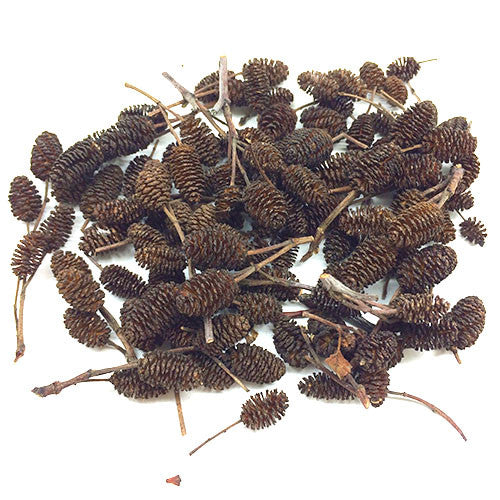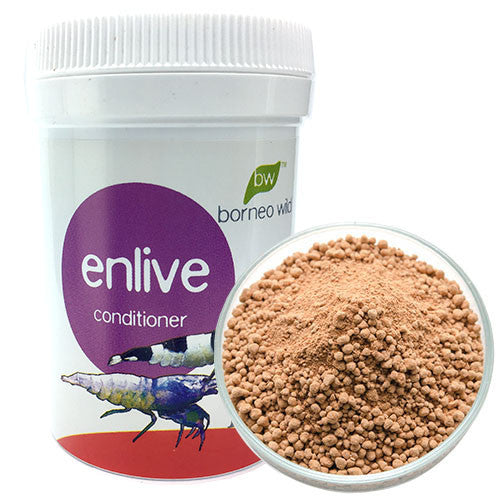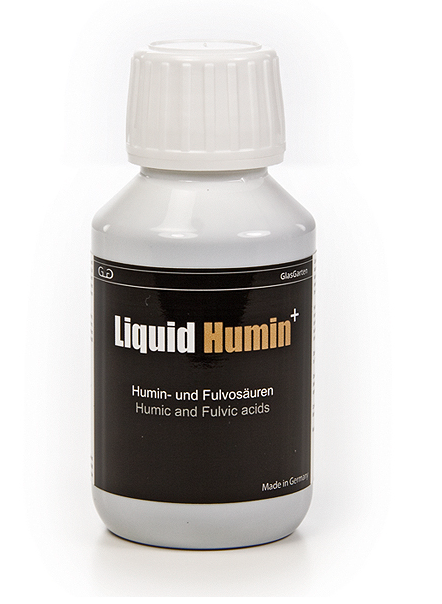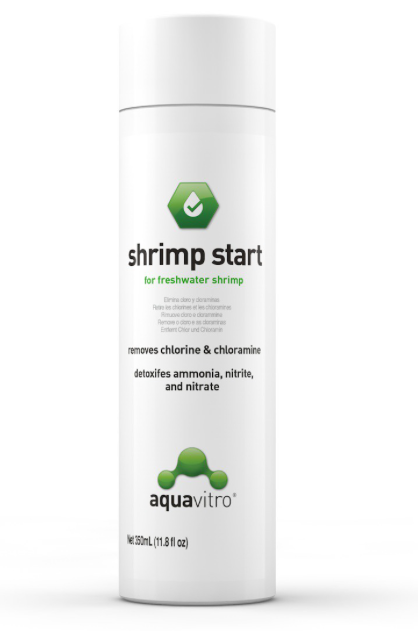See more: Mineral (Shrimp)
Water Conditioner
Indian almond leaves and various barks
Ingredients act against fungi and parasites
can strengthen the immune system
with humic acid, tannin, flavonoids and others
With Leaves & Bark, you add the valuable substances contained in Indian almond leaves and various barks of mainly tropical trees, without visibly coloring the water. They can help balance your aquarium biologically and may even increase the resilience of the animals in your tank against pathogens like harmful bacteria or viruses.
Indian almond leaves and various barks are very popular thanks to their positive influence, and they have been in use in the aquarium hobby for many years. Unfortunately, natural materials tend to release all the active substances within a few days, and then you remove them when changing water, and they also decompose during the natural processes inside the aquarium. What's left over is dead organic matter that decays slowly and is broken down by bacteria and other microorganisms over time. Moreover, leaves and bark can stain the water considerably, something that does not agree with each and every setup. Leaves & Bark enables you to replenish the positive substances easily and comfortably without the need of adding new leaves or pieces of bark every week.
Indian almond leaves are harvested from the Indian almond tree, Terminalia catappa. They contain large amounts of different secondary phytochemicals like flavonoids, humic acids (humic acid and fulvic acid), tannins, iridoids, pyrethroids and saponins. These substances are known to inhibit bacteria, prevent inflammations, help with tissue repair and mildly tan the mucous membranes of fish and inverts, which makes them more resilient. Moreover, they boost the willingness to spawn in shrimp and ornamental fish, they can prevent the spawn from being infected with fungi and can have a supportive effect to the immune system in the case of infections. They even have the ability to bind to toxic heavy metals in the water, rendering them harmless - for a good water quality.
Nature's way of protecting trees has been giving them bark, where their defenses against pathogens and parasites from the outside are concentrated. Various barks are traditionally used as medicine and care products, and with Leaves & Bark they now have been introduced into the aquarium hobby thanks to their manifold beneficial effects.
We use the bark of the African plum/cherry tree (Pygeum africanum), of the cat's claw (Uncaria tomentosa), of the lapacho tree (Tabebuia impetiginosa), of the oak tree (Quercus) and the quebracho tree (Aspidosperma quebracho-blanco).
These different barks add, amongst other substances, tannins, humins, humic acids, calcium and magnesium. They are especially valued as they have anti-inflammatory properties, but they can also have a positive influence on fertility, optimize the digestion of your aquarium animals, they fight fungi and parasites, inhibit viruses and boost the immune system of your aquarium inhabitants.
A detailed overview of the active substances in Leaves & Bark
Flavonoids: Water-soluble flavonoids are actually plant colorants, which play an important role in the plant's metabolism. They protect it from damage by microorganisms and insects. In the aquarium water, flavonoids may have an antiallergic and anti-inflammatory effect.
Humic acids: Humic acids, dark in color, form during the degradation of organic material. They have a highly beneficial effect on a multitude of vital functions in shrimp and fish, but they can also lower the pH of the water, bind to toxic substances and increase the overall well-being of the animals in the aquarium.
Tannins: Water-soluble tannins are tanning agents produced by plants, and they are found in large amounts in Indian almond leaves, for example. They can reduce the bacterial count in the water considerably.
Saponins / triterpenoids: Saponins / triterpenoids are active substances that are present in many medicinal plants. They can have a boosting effect on the immune system, are anti-inflammatory, dissolve mucus and stimulate the production of hormones. Moreover, they can increase the uptake of other substances in the intestine.
What are the effects of Leaves & Bark?
Against bacteria: The active substances contained in the Indian almond leaves and the barks used in the production of Leaves & Bark inhibit bacteria and may even kill them off. This effect is mainly caused by flavonoids (like for example quercetin and kaempferol).
Against fungi: The beneficial substances present in Indian almond leaves and tree barks are moreover known to inhibit fungi. Indian almond leaves and various barks have been in use in the aquarium hobby for many years, as a prevention and as a cure against fungal infections.
Against inflammations: Leaves & Bark can be used to stop inflammatory processes thanks to a whole range of different highly active substances: flavonoids and tannins, but also triterpenoids /saponins.
Against free radicals: Tannins may have a strong anti-oxidative effect, they can be used to catch the highly reactive free radicals, atoms or molecules that would otherwise do great damage to the organism. Tannins are highly effective in binding to them, thus rendering free radicals harmless.
For the mucous membranes: Tannins have a slight adstringent effect as they react with proteins in mucous membranes, rendering them less pervasive for microorganisms and parasites — a great prevention for white spot disease / ick in fish and many bacterial infections.
Use / Dosage
Shake well immediately before use
Add weekly 1 ml (approx. 12 drops) per 10 liters of aquarium water.
Content / Sufficiency
100 ml are sufficient for approx. 1.000 liters of aquarium water.
Indian almond leaves and various barks are very popular thanks to their positive influence, and they have been in use in the aquarium hobby for many years. Unfortunately, natural materials tend to release all the active substances within a few days, and then you remove them when changing water, and they also decompose during the natural processes inside the aquarium. What's left over is dead organic matter that decays slowly and is broken down by bacteria and other microorganisms over time. Moreover, leaves and bark can stain the water considerably, something that does not agree with each and every setup. Leaves & Bark enables you to replenish the positive substances easily and comfortably without the need of adding new leaves or pieces of bark every week.
Indian almond leaves are harvested from the Indian almond tree, Terminalia catappa. They contain large amounts of different secondary phytochemicals like flavonoids, humic acids (humic acid and fulvic acid), tannins, iridoids, pyrethroids and saponins. These substances are known to inhibit bacteria, prevent inflammations, help with tissue repair and mildly tan the mucous membranes of fish and inverts, which makes them more resilient. Moreover, they boost the willingness to spawn in shrimp and ornamental fish, they can prevent the spawn from being infected with fungi and can have a supportive effect to the immune system in the case of infections. They even have the ability to bind to toxic heavy metals in the water, rendering them harmless - for a good water quality.
Nature's way of protecting trees has been giving them bark, where their defenses against pathogens and parasites from the outside are concentrated. Various barks are traditionally used as medicine and care products, and with Leaves & Bark they now have been introduced into the aquarium hobby thanks to their manifold beneficial effects.
We use the bark of the African plum/cherry tree (Pygeum africanum), of the cat's claw (Uncaria tomentosa), of the lapacho tree (Tabebuia impetiginosa), of the oak tree (Quercus) and the quebracho tree (Aspidosperma quebracho-blanco).
These different barks add, amongst other substances, tannins, humins, humic acids, calcium and magnesium. They are especially valued as they have anti-inflammatory properties, but they can also have a positive influence on fertility, optimize the digestion of your aquarium animals, they fight fungi and parasites, inhibit viruses and boost the immune system of your aquarium inhabitants.
A detailed overview of the active substances in Leaves & Bark
Flavonoids: Water-soluble flavonoids are actually plant colorants, which play an important role in the plant's metabolism. They protect it from damage by microorganisms and insects. In the aquarium water, flavonoids may have an antiallergic and anti-inflammatory effect.
Humic acids: Humic acids, dark in color, form during the degradation of organic material. They have a highly beneficial effect on a multitude of vital functions in shrimp and fish, but they can also lower the pH of the water, bind to toxic substances and increase the overall well-being of the animals in the aquarium.
Tannins: Water-soluble tannins are tanning agents produced by plants, and they are found in large amounts in Indian almond leaves, for example. They can reduce the bacterial count in the water considerably.
Saponins / triterpenoids: Saponins / triterpenoids are active substances that are present in many medicinal plants. They can have a boosting effect on the immune system, are anti-inflammatory, dissolve mucus and stimulate the production of hormones. Moreover, they can increase the uptake of other substances in the intestine.
What are the effects of Leaves & Bark?
Against bacteria: The active substances contained in the Indian almond leaves and the barks used in the production of Leaves & Bark inhibit bacteria and may even kill them off. This effect is mainly caused by flavonoids (like for example quercetin and kaempferol).
Against fungi: The beneficial substances present in Indian almond leaves and tree barks are moreover known to inhibit fungi. Indian almond leaves and various barks have been in use in the aquarium hobby for many years, as a prevention and as a cure against fungal infections.
Against inflammations: Leaves & Bark can be used to stop inflammatory processes thanks to a whole range of different highly active substances: flavonoids and tannins, but also triterpenoids /saponins.
Against free radicals: Tannins may have a strong anti-oxidative effect, they can be used to catch the highly reactive free radicals, atoms or molecules that would otherwise do great damage to the organism. Tannins are highly effective in binding to them, thus rendering free radicals harmless.
For the mucous membranes: Tannins have a slight adstringent effect as they react with proteins in mucous membranes, rendering them less pervasive for microorganisms and parasites — a great prevention for white spot disease / ick in fish and many bacterial infections.
Use / Dosage
Shake well immediately before use
Add weekly 1 ml (approx. 12 drops) per 10 liters of aquarium water.
Content / Sufficiency
100 ml are sufficient for approx. 1.000 liters of aquarium water.





